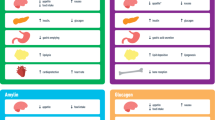Abstract
High-calorie diet has been shown to impair learning ability and hippocampal synaptic plasticity in rodents. This study examined effects of daily treatment with the glucagon-like peptide-1 mimetic, exendin-4, on cognitive function and hippocampal synaptic plasticity in a model of diet-induced obesity, which exhibits compromised cognitive performance. Mice fed a high-fat diet were treated with exendin-4 (25 nmol kg−1 bodyweight; twice daily) or saline vehicle (0.9% (w/v) NaCl) over 21 days. In addition to improving metabolic control, exendin-4-treated mice exhibited a marked increase in recognition index highlighting improved learning and memory. High-fat diet resulted in the elimination of in vivo electrophysiological long-term potentiation, which was rescued following exendin-4 treatment. This study shows that exendin-4 therapy improves cognitive function and ameliorates impaired hippocampal synaptic plasticity in dietary-induced obesity.
This is a preview of subscription content, access via your institution
Access options
Subscribe to this journal
Receive 12 print issues and online access
$259.00 per year
only $21.58 per issue
Buy this article
- Purchase on Springer Link
- Instant access to full article PDF
Prices may be subject to local taxes which are calculated during checkout

Similar content being viewed by others
References
Lovshin JA, Drucker DJ . Incretin-based therapies for type 2 diabetes mellitus. Nat Rev Endocrinol 2009; 5: 262–269.
Hamilton A, Hölscher C . Receptors for the incretin glucagon-like peptide-1 are expressed on neurons in the central nervous system. Neuroreport 2009; 20: 1161–1166.
During MJ, Cao L, Zuzga DS, Francis JS, Fitzsimons HL, Jiao X et al. Glucagon-like peptide-1 receptor is involved in learning and neuroprotection. Nat Med 2003; 9: 1173–1179.
Abbas T, Faivre E, Hölscher C . Impairment of synaptic plasticity and memory formation in GLP-1 receptor KO mice: Interaction between type 2 diabetes and Alzheimer's disease. Behav Brain Res 2009; 205: 265–271.
Perry T, Lahiri DK, Sambamurti K, Chen D, Mattson MP, Egan JM et al. Glucagon-like peptide-1 decreases endogenous amyloid-beta peptide (Abeta) levels and protects hippocampal neurons from death induced by Abeta and iron. J Neurosci Res 2003; 72: 603–612.
Gault VA, Hölscher C . GLP-1 agonists facilitate hippocampal LTP and reverse the impairment of LTP induced by beta-amyloid. Eur J Pharmacol 2008; 587: 112–117.
Kastin AJ, Akerstrom V, Pan W . Interactions of glucagon-like peptide-1 (GLP-1) with the blood-brain barrier. J Mol Neurosci 2002; 18: 7–14.
Stranahan AM, Normal ED, Lee K, Cutler RG, Telljohann RS, Egan JM et al. Diet-induced insulin resistance impairs hippocampal synaptic plasticity and cognition in middle-aged rats. Hippocampus 2008; 18: 1085–1088.
Flatt PR, Bailey CJ . Abnormal plasma glucose and insulin responses in heterozygous lean (ob/+) mice. Diabetologia 1981; 20: 573–577.
Trudeau F, Gagnon S, Massicotte G . Hippocampal synaptic plasticity and glutamate receptor regulation: influences of diabetes mellitus. Eur J Pharmacol 2004; 490: 177–186.
Hansotia T, Maida A, Flock G, Yamada Y, Tsukiyama K, Seino Y et al. Extrapancreatic incretin receptors modulate glucose homeostasis, body weight and energy expenditure. J Clin Invest 2007; 117: 143–152.
McGovern SF, McClean P, Gault VA, Holscher C . Novel GLP-1 Analogues Improve Memory Formation—A Link Between Diabetes and Alzheimer's Disease. Neuroscience Annual Meeting; 2009; Society for Neuroscience: Chicago, IL, Abstract 529.7.
Zachrisson O, Isacson R, Nielsen E, Bertilsson G, Dannaeus K, Wikstrom LB . Exendin-4 Stimulates Hippocampal Neurogenesis and Exerts Affective and Cognition Associated Effects in Behavioral Models. Neuroscience Annual Meeting; 2009; Society for Neuroscience: Chicago, IL, Abstract 549.4.
Acknowledgements
These studies were supported by University of Ulster Strategic Research Funding and the SAAD Trading and Contracting Company.
Author information
Authors and Affiliations
Corresponding author
Ethics declarations
Competing interests
The authors declare no conflict of interest.
Rights and permissions
About this article
Cite this article
Gault, V., Porter, W., Flatt, P. et al. Actions of exendin-4 therapy on cognitive function and hippocampal synaptic plasticity in mice fed a high-fat diet. Int J Obes 34, 1341–1344 (2010). https://doi.org/10.1038/ijo.2010.59
Received:
Revised:
Accepted:
Published:
Issue Date:
DOI: https://doi.org/10.1038/ijo.2010.59
Keywords
This article is cited by
-
Evaluating the Use of Glucagon-Like Peptide 1 for the Treatment of Cognitive Dysfunction in Individuals with Mood Disorders
Current Treatment Options in Psychiatry (2022)
-
Insights into a possible role of glucagon-like peptide-1 receptor agonists in the treatment of depression
Pharmacological Reports (2021)
-
Targeting Insulin Resistance to Treat Cognitive Dysfunction
Molecular Neurobiology (2021)
-
FGF21 Attenuates High-Fat Diet-Induced Cognitive Impairment via Metabolic Regulation and Anti-inflammation of Obese Mice
Molecular Neurobiology (2018)
-
Non-estrogenic Xanthohumol Derivatives Mitigate Insulin Resistance and Cognitive Impairment in High-Fat Diet-induced Obese Mice
Scientific Reports (2018)



